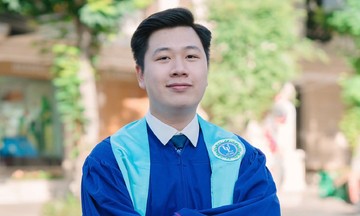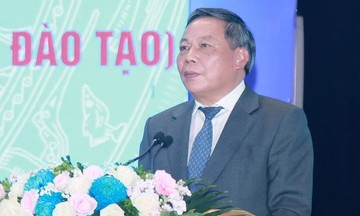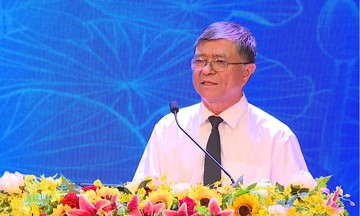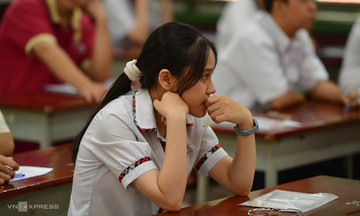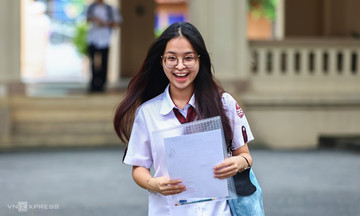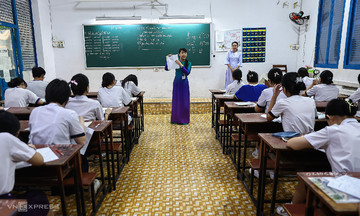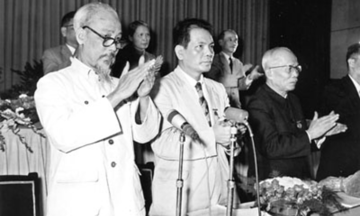Nguyen Thi Thuy Huong was a computer science student at the University of Engineering and Technology (VNU-UET), Vietnam National University, Hanoi. On 5/7, Huong received her diploma with honors, achieving the highest GPA among approximately 700 graduating students.
"I'm happy but not surprised," Huong said.
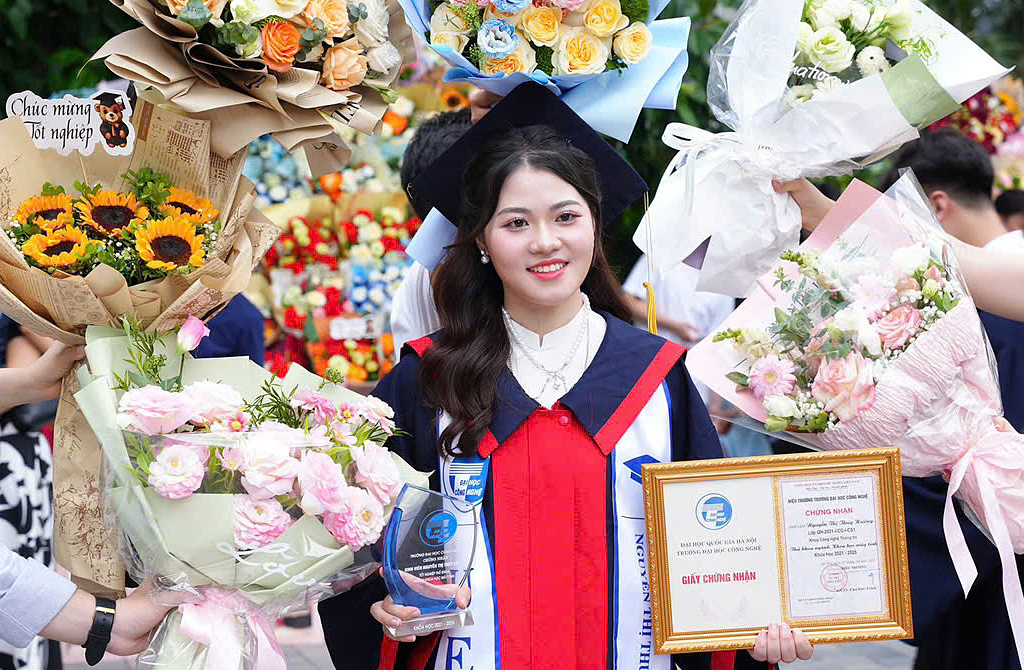 |
Thuy Huong on her graduation day, 5/7. Photo courtesy of the subject |
Thuy Huong on her graduation day, 5/7. Photo courtesy of the subject
Huong is a former student of the specialized math program at Nguyen Hue Specialized High School in Hanoi. In 2021, during university admissions amidst the Covid-19 pandemic, recognizing the potential of the technology sector, Huong researched reputable universities and chose VNU-UET's computer science program.
Thanks to her specialized math background and second and third place awards in Hanoi city-level math competitions in two consecutive years, Huong was accepted. Her national high school graduation exam score of 28.1 in the A00 combination (Math, Physics, Chemistry) also qualified her for admission.
Unlike her peers specializing in computer science, Huong didn't have prior programming experience in high school and had to study online during her first semester due to Covid-19. However, she adapted more easily than anticipated.
"The school's learning and examination schedule was very reasonable. From the first year, I learned both theory and practical programming, which made it easy to catch up," Huong explained.
The Hanoi native believes that expertise in any field is a combination of aptitude, time, and strategy. Aptitude is inherent, so Huong focused on developing a learning strategy to maximize her results.
Before each class, Huong reviewed lecture slides and textbooks, grasping the fundamental concepts and formulating related questions. She researched these questions online, noting any unresolved queries to ask her professors during class.
"Preparing beforehand allowed me to understand the material in detail and actively participate in class to earn points. Then, I listened attentively during lectures for better retention," Huong shared.
When exams approached, Huong created a study schedule for each subject. She summarized key theories, writing them on large sheets of paper to visualize the overall content. Then, she practiced exercises, reviewed past papers, and revisited any incorrect answers.
Huong also frequently studied in groups, discussing and explaining concepts with her peers to enhance learning motivation.
As a result, Huong achieved high scores from her first semester and consistently received merit-based scholarships. Only in the first semester of her third year did she miss a scholarship by 0.02 points, falling just short of the top 8% of students in her department.
Huong explained that 5 out of 6 subjects that semester required group projects. In the web application development project, Huong's group encountered difficulties, resulting in a lower score. For Huong, the B grade in this subject was her lowest in 4 years of university.
"I spent a week feeling upset. Even though I completed my part of the project, I was still quite disappointed, wondering if it was due to my lack of ability, carelessness, or just bad luck," Huong recalled.
After that experience, Huong became more attentive during group work. Even if she wasn't the group leader or had finished her assigned tasks, she monitored the progress of other members to ensure timely completion.
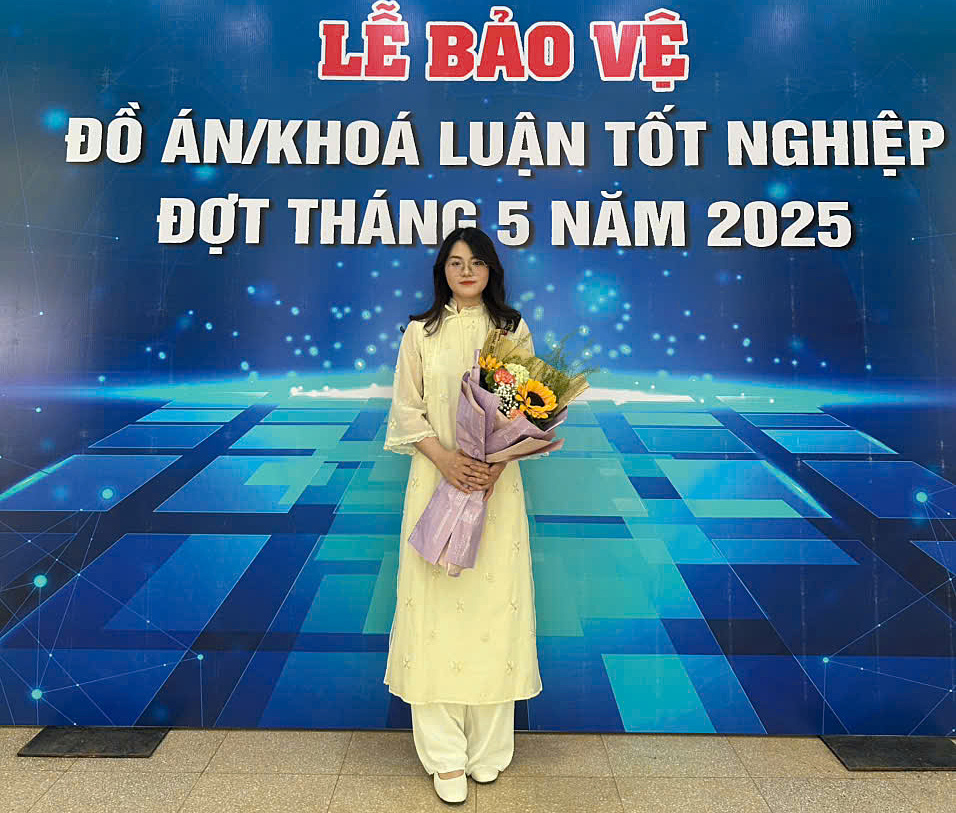 |
Huong at her graduation thesis defense ceremony in May. Photo courtesy of the subject |
Huong at her graduation thesis defense ceremony in May. Photo courtesy of the subject
Beyond academics, from her third year, Huong joined the Data Science and Knowledge Technology Laboratory (DS&KTLab) for research. Starting later than many of her peers, Huong dedicated extra time to learn how to read and write research papers.
Within a short period, Huong's group won third place in a faculty-level research competition. She also co-authored a paper on natural language processing presented at the 38th Pacific Asia Conference on Language, Information and Computation (PACLIC38) in 2024.
Huong further developed this research for her graduation thesis.
Doctor Le Hoang Quynh, a lecturer in the Information Technology department who supervised Huong's research, was impressed by her consistent willingness to present. She considers Huong an exceptional student with diverse skills, capable of excelling in various tasks.
"Huong isn't the absolute best at any single skill, for example, she's not the best programmer in the school. But she performs well or better in everything from programming and research to presentations, writing, communication, and expressing ideas. This is rare among technology and engineering students," Quynh commented.
Observing Huong's interactions with younger students, Quynh recognized her aptitude for teaching and research. Therefore, she encouraged Huong to consider pursuing a master's degree.
Huong also found this path appealing, especially as VNU-UET started offering tuition waivers and a monthly stipend of 5 million VND for master's students.
"This motivates me to focus on my studies for at least the next two years," Huong stated.
Duong Tam



